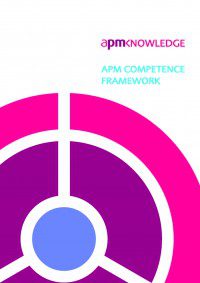 How do we really know what we are good at, what we need to improve and most importantly to many of us, what do we need to do to get that next job or promotion?
How do we really know what we are good at, what we need to improve and most importantly to many of us, what do we need to do to get that next job or promotion?
Yes, we can get feedback from our line manager or colleagues and this can be invaluable, especially when we are considering our management style or interpersonal skills.
But, how can we really get a handle on the technical skills we may need to develop, or understand the job roles that are best suited to our individual technical skills and strengths?
Having the confidence that you are benchmarking yourself accurately against key competences and requirements can be invaluable. It can really give you that edge when it comes to your personal development, and getting that next big role or project.
That’s where the new APM Competence Framework can really help. Previously only relevant for project management, the new framework has been extended to include programme, portfolio and PMO management, making it the tool of choice for all project professionals.
More importantly, the new framework has been written in terms of what the practitioner needs to be able to do, in other words it is outcome focused which helps you to build your personal development plans around meaningful development solutions.
The most effective way to do this is to complete a self-assessment using resources provided by the Association for Project Management (APM):
- The 27 competences, each with a range of application and knowledge based indicators that you can assess against.
- A five-point ratings scale where you can score yourself from being “aware” to being “expert”, based on your skills or experience against each particular indicator within the competence.
These self-assessment scores help you to clearly identify the gaps, and these enable you to create a much more relevant personal development plan. It’s a great solution to support your CPD activities too.
You and your organisation may benefit from the full package of assessment materials, provided under licence by APM. This includes 14 role profiles developed for project professionals at all levels – including programme, portfolio and PMO roles – which help create a structure for career development, enabling individuals and organisations to target the areas they need to develop.
You can use all of these tools in confidence, knowing they have been created by the largest professional body for project professionals in the UK.
More information can be found on APM’s dedicated webpages.

